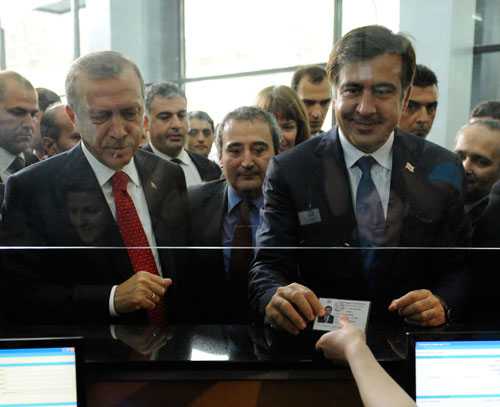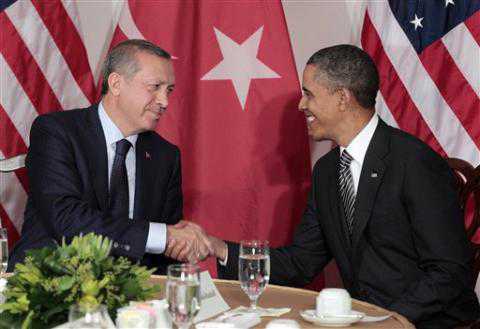Written by Tako Khelaia

The FINANCIAL — 1,793,449 foreign guests visited Georgia during first 8 month of 2011, which is a 43% growth in accordance to last year’s index according to the Georgian National Tourism Agency (GNTA).
For the first 8 month of 2010, 1,258,488 foreigners visited Georgia which is 534,961 less in accordance to 2011. As GNTA notes, for the first 8 months of 2009, 942, 371 foreigners traveled to Georgia and the number of guests in 2009 was 35% less in accordance to the first 8 months of 2010.
The number of Georgian tourists visiting foreign countries has also increased by 4% this year. According to the index of the first 8 months of 2011, 1,415,385 Georgians visited foreign countries, while in 2010 only 1,356,599 did which were 58,786 less comparing to the first 8 months of 2011.
According to the GNTA, Turkey still tops the list of the most visited countries. A total of 28% of Georgian tourists visited Turkey during the first 8 months of 2011. Ukraine holds the second place of the most frequently visited countries. Overall 16% of Georgian tourists visited Ukraine , 15% Armenia, 9% Germany, 9% Azerbaijan, 4% USA, 4% United Kingdom,3% Italy, 2% Egypt, 2% Poland and the remaining 8% to other parts of the world.
Tbilisi has been the most popular tourism destination among foreign tourists. A total of 60% of the total visitors to Tbilisi during the first 8 months of 2011 were foreigners. Batumi was visited by 43% of tourists, Mtskheta by 8%, Kutaisi by 6%, Lagodekhi 5%, Kazbegi 4%, Gori 4%, Kobuleti 3%, Mestia/Ushguli, 2%, Davit Gareji, 2%, Vardzia 1%, Telavi 1%, Bakuriani 1%, Gudauri 1 % and the other 9% belongs to different other destinations in Georgia.
“For the purpose of leisure and recreation, 34% of foreigners visited Georgia during the first 8 months of 2011. For visiting friends and relatives, 26% of tourists visited our country and 20% of foreign guests were on their business and professional trips in Georgia during the first 8 months of 2011. 10% of foreign tourists visited our country for the purpose of transit, 3% due to education and training and 3% for employment,” the GNTA notes.
“2 % of foreign guests visited Georgia during the first 8 months of 2011 for the purpose of shopping, 2% for health and medical care, 0.2 % for religious reasons or pilgrimages and 0.1 % of foreigners were on diplomatic missions,” GNTA notes.
The majority of tourists are business travelers and transit travelers (31%) who stayed for one day in Georgia. According to the statistics 26% of tourists stayed for just 2-3 days, 12 % for 4-5 days, 8% for 6-7 days, 10% for 8-14 days, 4% for 15-20 days, 5% for 21-30 days and 4% for 31 or more days. The average number of nights spent in Georgia was 8, while for the purpose of leisure and recreation the average length of a visit to Georgia was 6 days. While visiting friends and relatives in Georgia, the average length of a visit was 11 days and for the purpose of business or professional duty the average length of a visit was 13 days.
According to the GNTA, 42% of tourists preferred to stay with their families, 38% used hotel accommodation, 9% guesthouses or cottages, 8% hired a flat, 5% stayed in transport facilities, 1% stayed in camping or trailer park and 0.3% were in Airport s or in railway stations. The average expenditure of one tourist during 8 days spent in Georgia was 1,470 GEL.
The number of domestic tourism for the first 8 month of 2011 has as well increased in Georgia and in accordance to the same period of last year the number has raised by 20%. For the first 8 months of 2011 the number of domestic tourists was 866,551, while in 2010 there were 721,382, which is 145,175 times less in accordance to this year’s index.
“The region of Adjara was visited by 1,006,319 tourists during the first 8 months of 2011, of which 655,419 were Georgians and 350,900 were foreign tourists. The number of tourists visiting Adjara has increased by about 36% this year. During the first 8 months of 2010, 741,475 tourists visited Adjara from which 498,393 were Georgians and 243,082 foreigners,” the GNTA notes.
“Among the purposes of domestic tourists for traveling within the territory of Georgia, visiting friends and relatives was the most prioritized. A total of 49% of domestic tourists visited their friends and relatives, 39% were visiting different parts of Georgia for leisure and recreation, 6% for business and professional purpose, 3% for Health and medical care, 2% for pilgrimage, 1% for employment, 1% for shopping and 0.3% for education or trainings,” GNTA officials note.
According to the GNTA the average length of domestic tourists’ visits to different parts of Georgia was 5 days. 23% of domestic tourists stayed for one day, 35% for 2-3 days, 10% for 4-5 days, 12% for 6-7 days, 12% for 8-14 days, 3% for 15-20 days, 3% for 21-30 days and 1% for 31 or more days. 75% of domestic tourists preferred to stay with their families, 5% stayed at guesthouses or cottages, 4% in hotels, 2% hired a flat, 1% stayed in different transport facilities, 1% went for camping or staying in trailers, 1% in monasteries, 0.4 % in hospitals and 12% didn’t spent the night at all.
“The most attractive tourism destination for Georgians was Tbilisi which was visited by 13% of tourists during the first 8 months of 2011. Batumi was visited by 8% of Georgian tourists, Kutaisi/Motsameta/Sataplia by 6%, Tskneti/Manglisi/Tsavkisi/Kodjori by 3% Mtskheta/Armazi/Akhatani/Saguramo by 3%, Kobuleti by 3%, Khashuri/Surami/Kvishkheti by 3% and Bakuriani by 2%,” the GNTA notes.
“Zugdidi was visited by 2% of Georgian tourists, Gori by 2%, Sighnaghi/Bodbe by 2%, Zestafoni by 2%, Telavi by 2%, Chiatura, Kaspi, Lagodekhi, Samtredia, Borjomi and Ozurgeti were also visited by 2% of Georgian tourists. The other destinations in Georgia were visited by 42 % of domestic tourists,” the GNTA notes.
The average expenditure of Georgian tourists in Georgia was on average 581 GEL during 5 days. The average expenditure of domestic tourists on residence for 5 days was 211 GEL, on food and drinks 117 GEL, on souvenirs and gifts 53 GEL, on transport 43 GEL, on train fares 26 GEL, on transport 46 GEL and on other important goods and products 85 GEL.






